Review: MUCHO RUIDO POR NADA at Peruano Japonés Theatre
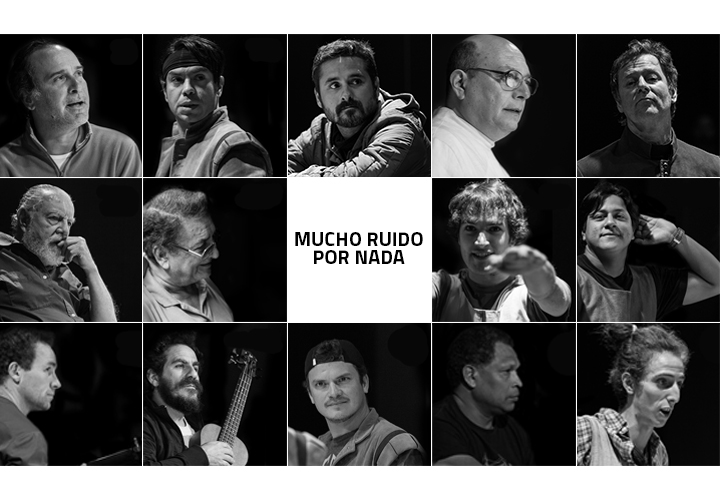
One would think that after 400 years, Much Ado About Nothing, the comedy of William Shakespeare might feel distant and outdated. This play shows us that the situations posed in the original work are closer to our reality than we think.
Chela de Ferrari was in charge of the adaptation and direction of this classic, while fourteen actors have the task of embodying the various characters, including the female ones. This decision is a direct reference to how theater was made in those years, however, this direction becomes a demonstration of sensitivity in which it is not necessary to force any action or gestures to captivate and touch the audience. The actors, at the request of the director, look within themselves for the feminine part that they possess and radiate it with a refreshing comfort. The music, essential during all the important points of the play, sets the rhythm of the emotions and goes from The Beatles through a powerful version of ¿Por qué te vas? of Jeanette, ending in La Macarena. Reading it might sound strange but the great work of the musical director, Santiago Pillado-Matheu makes such a mix of genres perfectly integrated into the story.
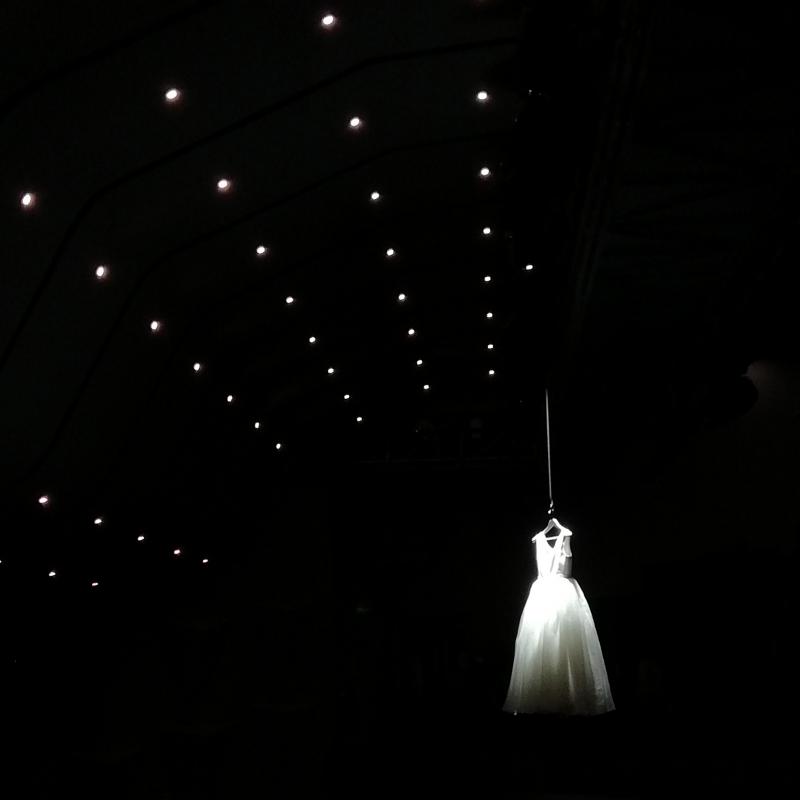
The Peruano Japones Theater welcomes us with an unusual disposition. The curtain is open and shows two grandstands arranged to the sides -like an Elizabethan theater- musical instruments in the background, seven dresses hanging several meters above the stage being a white wedding dress that stands out. While the assistants are taking their seats, we ask ourselves the usefulness of these elements within the story.
Third call and the lights do not go out, Los Isabelinos (band responsible for musicalizing the play and composed by the same actors) placed themselves between the instruments, the vocalist, Claret Quea (who also wears the fun mantle of Ursula) takes a few steps forward and claims: "Quiero decirte algo, estoy seguro me entenderás y cuando te lo diga, quiero tomar tu mano" a version with latin rhythms of The Beatles' I Want To Hold Your Hand begins to sound; five claps transform the romantic rhythm to a funny salsa that attracts the other actors to the center stage. While the dresses go down, the actors dance, sing and put on the costumes that will accompany and transform them until the end of the play, the song is interrupted with the first dialogues.
The chemistry, complicity and friendship of the actors is palpable, each one is perfect in his role as a maid or as a prince. The main couple, Beatriz (Paul Vega) and Benedicto (Pietro Sibille) catch the attention from the first moment in which they share dialogues letting their essence be the one that predominates. The job of the actors to interpret their role, being part of the cast and at the same time in charge of scenography makes everything feel even more intimate. The rhythm of the original play is maintained, the dialogues flow and the arrange of the stage makes us feel that we are residents of the streets of Messina and not just spectators.
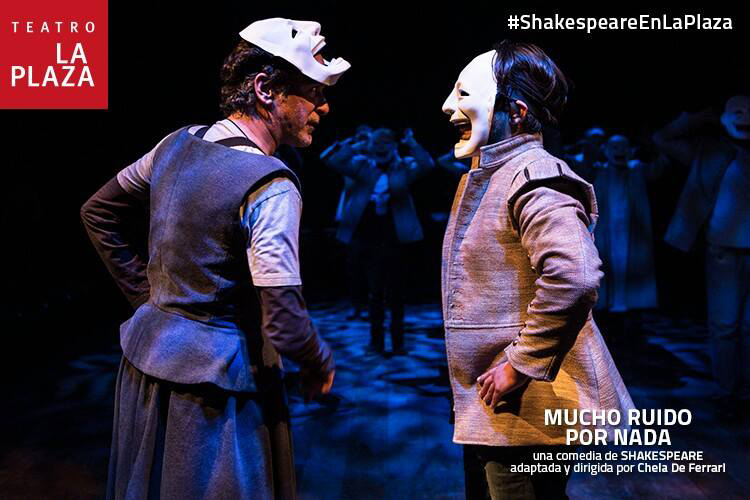
It's this closeness that is formed in the course of the play that allows the actors to perfectly convey their emotions to the viewers, this is the reason why we get excited when Don Pedro (Javier Valdés) becomes Cupid, we laugh with the occurrences of Benedict (Sibille) and Beatriz (Vega) and we are outraged by the treatment that Hero (Sergio Gjurinovic) receives from Claudio (Rómulo Assereto).
Sergio Gjurinovic who embodies the sweet Hero, deserves a special mention. His work stands out because of the sensitivity, fragility and strength shown in two of the most important moments of the play. The first, as in the original version, where she is humiliated in front of her family and town. The second and perhaps the most significant: breaking his role and showing his indignation at the abuse suffered by his character, receiving the approval of the entire venue.
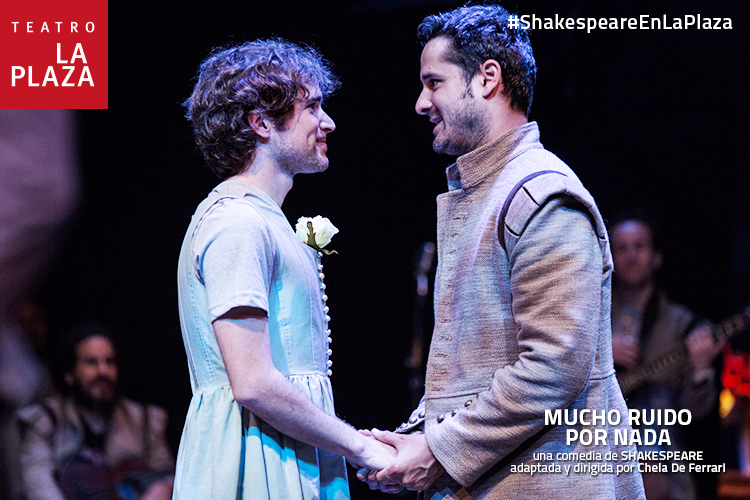
The minutes that follow are a mixture of joy and surprise due to the discussion of the cast to resolve the end of the play that was "interrupted" abruptly by Gjurinovic, discussion that is cut by a passionate kiss between two of the characters already stripped of their costumes and showing themselves as human beings who love each other.
The play doesn't waste the opportunity to make a social criticism to the current situation of Peru and that can be molded perfectly into societies similar to ours. The way in which integrates current issues such as marriage between people of the same sex (illegal in the country) and gender violence are what makes an important difference from the original script, showing that nothing is untouchable, there are things that are not right and undermine the freedoms and rights of people. Theatre has the means to change people's perspective and this play can do it beautifully.

Finally, the show ceases to be a representation of Shakespeare's comedy and becomes a party. A party that celebrates love in all its forms, that does not allow violence alter the meaning of love, that we all have the right to be happy and love who and how we want.

DIRECTED BY: Chela de Ferrari
CAST:
- Paul Vega as Beatriz
- Pietro Sibille as Benedicto
- Rómulo Assereto as Claudio
- Sergio Gjurinovic as Hero
- Ricardo Velásquez as Leonato
- Javier Valdés as Don Pedro
- Carlos Tuccio (P.M.C.) as Antonia, escribano
- Ismael Contreras as Dogberry, mujer
- Luis Sandoval as Fraile, soldado
- Óscar López-Árias as Don Juan, rondero, mujer
- Emilram Cossío as Margarita, rondero
- Pablo Saldarriaga as Conrado, mujer
- Rodrigo Sánchez Patiño as Borachio, mujer
- Claret Quea as Úrsula, rondero
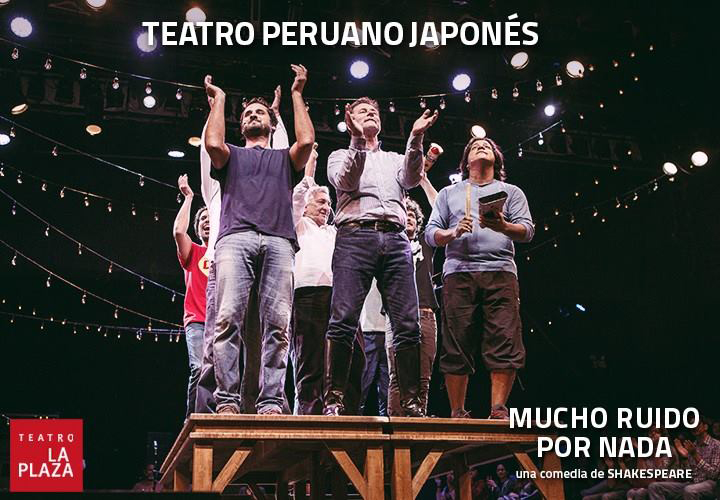
Reader Reviews

Videos

